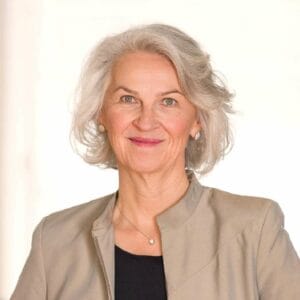

By Diana Chambers, the Family Wealth Mentor
We all have relationships with money, just as we have relationships with people. We express our desires, needs and beliefs within those relationships and they are charged with emotions.
Two decades ago, I started the Chambers Group to offer strategic philanthropic advice and to be a mentor for individuals and families, addressing the human dimensions of their wealth. My role as a Family Wealth Mentor™ is to help my clients relate to their wealth in emotionally intelligent ways, whether it involves inter-generational issues; inheritance; the sale of a family business; or an individual’s place in the family.
The primary function of money was originally as a medium of exchange, but our current global monetary system has evolved in ways that do not treat all people fairly. There is nothing intrinsically wrong with wealth and many people who are wealthy are deploying their resources in generative ways. What matters is how you relate to your wealth, what you do with it, and how you relate to others because of, or, in spite of it.
Learning from money is a lifelong journey into greater freedom and wellbeing. In 2016, I wrote True Wealth: Letters on Money, Life and Love, highlighting the common struggles I saw in my clients and proposing ways for the affluent to harmonize their relationships with wealth and those they love.
The problems come when we give money meaning that it cannot realize and create a delusional bubble around it, wanting it to achieve the impossible for us. We might hope that money will bring us freedom, love, and security; but then we may be uncertain if we are loved for ourselves or for our wealth. And invariably, we feel the need to protect ourselves and our wealth. Money – or having more money – alone will not give us what we are seeking.
Yet if we are discerning, we can use money to enhance our happiness. As Elizabeth Dunn and Michael Norton described in their book Happy Money, people who spend primarily on experiences that strengthen their social relationships and on investing in others feel more happiness.
When you take the time to listen closely to yourself and act on what you truly know, wealth can find its natural balance in your life. You will discover thoughtful, creative ways for your wealth to flow and to do this you need to be connected not only with yourself but with what is unfolding in society.
While the dangers of worshipping money and the importance of keeping it in its proper place are recognized in many of the ancient scriptures, as a global society we adulate money and the holders of it. The dominant capitalist message to keep accumulating can pull us out of alignment from our true nature, which would ordinarily signal to us how much is enough or not enough.
Money is a mirror. We can use it to identify what is motivating us, ranging from what we love to what we fear most deeply. Money can be our teacher if we study and appreciate the lessons offered. How you handle money in your relationships illustrates whether you are connected to or disconnected from yourself and from the people you are in a relationship with, so your money behavior can tell you a great deal about yourself.
As a wealth mentor, I have helped my clients to look in the ‘money mirror’ and to understand the money messages they have received and given throughout their lives, and the belief systems on which those messages were built. With such awareness we have the opportunity to choose.
Yet how we deploy money is often so unconscious that, without the help of skilled facilitators, we find it hard to understand the roots of our financial behavior. Our cultural milieu does not invite such close examination, emphasizing strength and confidence while encouraging us to believe that more is always better. Yet curiosity leading to self-awareness, combined with vulnerability is a pathway to health.
The first step to inner clarity is to recognize any fear, anxiety, or discomfort in your relationship with money and appreciate why you carry it – perhaps it is a fear of scarcity which stems from childhood experiences, or maybe it is a difficulty receiving gifts because you worry it will compromise your independence.
I have addressed this subject in an article, available as a free download on my website, entitled Money Wisdom Unlocked: Understanding Trauma as a Key to Your Financial Behavior. In it, I argue that only by understanding the roots of your behavior and beginning the task of healing your underlying trauma – we all have some – can you sense what is right for you to do rather than attempting to pursue what you believe will give you security.
Wealth does not equal freedom. Our financial assets cannot replace an inner sense of wealth, knowing that we are enough, and we will always have enough. If material wealth is being used to replace inner wealth, the emptiness will remain. Our work is to build our inner wealth.
If we allow money to flow through us and into society – rather than trying to build our perceived sense of security – we are on the right path.
ends
Money Wisdom Unlocked: Understanding Trauma as a Key to Your Financial Behavior is available from https://dianachambers.com/


